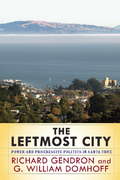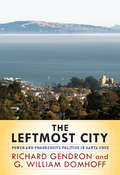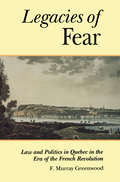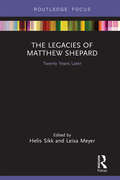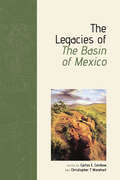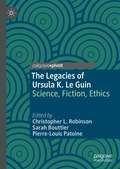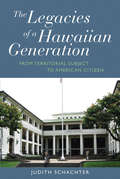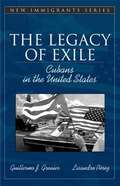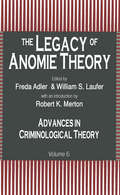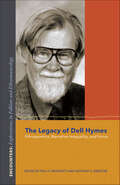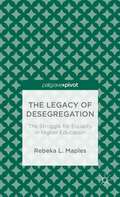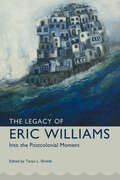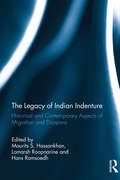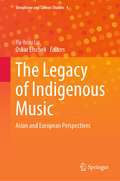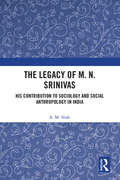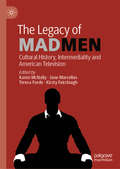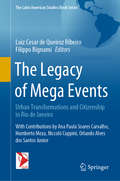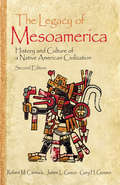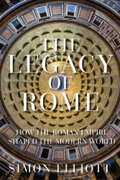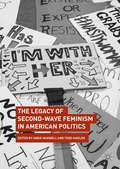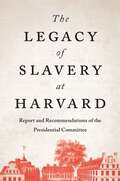- Table View
- List View
The Leftmost City
by G. William Domhoff Richard GendronAlmost all US cities are controlled by real estate and development interests, but Santa Cruz, California, is a deviant case. An unusual coalition of socialist-feminists, environmentalists, social-welfare liberals, and neighborhood activists has stopped every growth project proposed by landowners and developers since 1969, and controlled the city council since 1981. Even after a 1989 earthquake forced the city to rebuild its entire downtown, the progressive elected officials prevailed over developers and landowners. Drawing on hundreds of primary documents, as well as original, previously unpublished interviews, The Leftmost City utilizes an extended case study of Santa Cruz to critique three major theories of urban power: Marxism, public-choice theory, and regime theory. Santa Cruz is presented within the context of other progressive attempts to shape city government, and the authors' findings support growth-coalition theory, which stresses the conflict between real estate interests and neighborhoods as the fundamental axis of urban politics. The authors conclude their analysis by applying insights gleaned from Santa Cruz to progressive movements nationwide, offering a template for progressive coalitions to effectively organize to achieve political power.
The Leftmost City
by G. William Domhoff Richard GendronAlmost all US cities are controlled by real estate and development interests, but Santa Cruz, California, is a deviant case. An unusual coalition of socialist-feminists, environmentalists, social-welfare liberals, and neighborhood activists has stopped every growth project proposed by landowners and developers since 1969, and controlled the city council since 1981. Even after a 1989 earthquake forced the city to rebuild its entire downtown, the progressive elected officials prevailed over developers and landowners. Drawing on hundreds of primary documents, as well as original, previously unpublished interviews, The Leftmost City utilizes an extended case study of Santa Cruz to critique three major theories of urban power: Marxism, public-choice theory, and regime theory. Santa Cruz is presented within the context of other progressive attempts to shape city government, and the authors' findings support growth-coalition theory, which stresses the conflict between real estate interests and neighborhoods as the fundamental axis of urban politics. The authors conclude their analysis by applying insights gleaned from Santa Cruz to progressive movements nationwide, offering a template for progressive coalitions to effectively organize to achieve political power.
The Leftmost City: Power and Progressive Politics in Santa Cruz
by G. William Domhoff Richard GendronAlmost all US cities are controlled by real estate and development interests, but Santa Cruz, California, is a deviant case. An unusual coalition of socialist-feminists, environmentalists, social-welfare liberals, and neighborhood activists has stopped every growth project proposed by landowners and developers since 1969, and controlled the city council since 1981. Even after a 1989 earthquake forced the city to rebuild its entire downtown, the progressive elected officials prevailed over developers and landowners. Drawing on hundreds of primary documents, as well as original, previously unpublished interviews,The Leftmost Cityutilizes an extended case study of Santa Cruz to critique three major theories of urban power: Marxism, public-choice theory, and regime theory. Santa Cruz is presented within the context of other progressive attempts to shape city government, and the authors' findings support growth-coalition theory, which stresses the conflict between real estate interests and neighborhoods as the fundamental axis of urban politics. The authors conclude their analysis by applying insights gleaned from Santa Cruz to progressive movements nationwide, offering a template for progressive coalitions to effectively organize to achieve political power.
The Leftmost City: Power and Progressive Politics in Santa Cruz
by Richard GendronAlmost all US cities are controlled by real estate and development interests, but Santa Cruz, California, is a deviant case. An unusual coalition of socialist-feminists, environmentalists, social-welfare liberals, and neighborhood activists has stopped every growth project proposed by landowners and developers since 1969, and controlled the city council since 1981. Even after a 1989 earthquake forced the city to rebuild its entire downtown, the progressive elected officials prevailed over developers and landowners. Drawing on hundreds of primary documents, as well as original, previously unpublished interviews, The Leftmost City utilizes an extended case study of Santa Cruz to critique three major theories of urban power: Marxism, public-choice theory, and regime theory. Santa Cruz is presented within the context of other progressive attempts to shape city government, and the authors? findings support growth-coalition theory, which stresses the conflict between real estate interests and neighborhoods as the fundamental axis of urban politics. The authors conclude their analysis by applying insights gleaned from Santa Cruz to progressive movements nationwide, offering a template for progressive coalitions to effectively organize to achieve political power.
The Legacies of Fear
by F. Murray GreenwoodMany people assume that a French-English cleavage has always existed and historians have been uncertain as to just how it unfolded. This book provides the answer. Greenwood re-creates a Quebec in which trust between French and English Canadians was an early casualty of the execution of Louis XVI and the descent of the French Revolution through terror into war. Fearing invasion, the English community, through the law officers of the crown, drafted draconian legislation and established an efficient counter-intelligence service. Lower Canada in these years was a hotbed of spies and counter-intelligence, highlighted by the trial for high treason of an American undercover agent for revolutionary France. Placing the legal history of Quebec in the foreground of these dangerous and dramatic events, Greenwood reveals this period as a turning point that altered not only French-English relations but Canada's legal and constitutional inheritance.While the focus is on legal and political history, the narrative also details intellectual, military, social, and economic developments. The author pursues many dynamic themes of the period including the riots among working people in the 1790s; the differences in judicial behaviour when security matters were at stake; the setting up of the first formal counter-intelligence service, and issues related to the suspension of habeas corpus.Murray Greenwood is one of Canada's finest legal historians. In this work his wide perspective, supported by extensive documentation, brings new evidence and insight to a formative and somewhat neglected period in Canada's history.
The Legacies of Matthew Shepard: Twenty Years Later (Focus on Global Gender and Sexuality)
by Helis Sikk Leisa MeyerThis edited collection explores the deeper contexts and consequences surrounding the murder of Matthew Shepard. This young gay man was brutally beaten and left tied to a fence on a chill Wyoming night in October 1998. Found the next morning by two cyclists, he was transported to a hospital in Fort Collins, Colorado where he died five days later. His murder was one of the most publicized and for some, most vividly remembered, instances of hate crime related violence based on sexual orientation. Twenty years after his death, Matthew Shepard’s story is at a critical turning point: memories of his murder and its meanings can either fade into the past or be reinvigorated to make up part of more meaningful investigations into LGBTQ and modern U.S. history. The multidisciplinary contributors to this book blend personal narrative with more conventional academic approaches to offer a 20-year retrospective that re-examines the subject of Shepard’s murder, whilst also bringing to light questions of historical memory, rurality, race, and public policy. Each of the disciplines and genres included contributes unique understandings of the murder and responses to it that cannot be articulated solely through traditional academic writing. This collection then not only tells the story of Matthew Shepard in the context of 2018, but also provides a compelling view of how and through which means American culture communicates painful histories of violence, bias, and death.
The Legacies of The Basin of Mexico (G - Reference,information And Interdisciplinary Subjects Ser.)
by Christopher T. Morehart Carlos E. CordovaThis volume celebrates the continuing impact of the most notable contributions from The Basin of Mexico: The Ecological Processes in the Evolution of a Civilization by William T. Sanders, Jeffrey R. Parsons, and Robert S. Santley. In 1979, this influential work synthesized the results of the Basin of Mexico survey projects and follow-up excavations at several sites, while providing theoretical and methodological lines of research in central Mexico and generally in Mesoamerica. More than four decades after that book’s publication, the fourteen contributions in this volume review and analyze its theoretical and methodological influence in light of recent research across disciplines. Among a spectrum of authors representing several generations are those who participated directly in the Basin of Mexico surveys—including the late Jeffrey R. Parsons—as well as those who have been actively working on recent projects in the basin and neighboring regions. Providing a broad and multidisciplinary perspective of the present and future state of research in the area, The Legacies of The Basin of Mexico will be of interest to Mesoamerican and Latin American archaeologists as well as geographers, geologists, historians, and specialists in the study of past environments. Contributors: Guillermo Acosta Ochoa, Aleksander Borejsza, Destiny Crider, Charles Frederick, Raúl García-Chávez, Larry Gorenflo, Angela Huster, Georgina Ibarra Arzave, Charles Kolb, Frank Lehmkuhl, Abigail Meza Peñaloza, Emily McClung de Tapia, John K. Millhauser, Deborah Nichols, Jeffrey R. Parsons, Serafin Sánchez Pérez, Philipp Schulte, Sergey Sedov, Elizabeth Solleiro Rebolledo, Daisy Valera Fenández, Federico Zertuche
The Legacies of Ursula K. Le Guin: Science, Fiction, Ethics (Palgrave Studies in Science and Popular Culture)
by Christopher L. Robinson Sarah Bouttier Pierre-Louis PatoineThe Legacies of Ursula K. Le Guin explores how Le Guin’s fiction and essays have built a speculative ethical practice engaging indigenous knowledge and feminism, while crafting utopias in which human and other-than-human life forms enter into new relations. Her work also delineates new ways of making sense of the “science” of science fiction. The authors of this collection provide up-to-date discussions of well-known works as well as more experimental writings. Written in an accessible style, Legacies will appeal to any readers interested in literature, science fiction and fantasy, as well as specialists of science and technology studies, philosophy of science, ethics, gender studies, indigenous studies and posthumanism.
The Legacies of a Hawaiian Generation: From Territorial Subject to American Citizen
by Judith SchachterThrough the voices and perspectives of the members of an extended Hawaiian family, or `ohana, this book tells the story of North American imperialism in Hawai`i from the Great Depression to the new millennium. The family members offer their versions of being "Native Hawaiian" in an American state, detailing the ways in which US laws, policies, and institutions made, and continue to make, an impact on their daily lives. The book traces the ways that Hawaiian values adapted to changing conditions under a Territorial regime and then after statehood. These conditions involved claims for land for Native Hawaiian Homesteads, education in American public schools, military service, and participation in the Hawaiian cultural renaissance. Based on fieldwork observations, kitchen table conversations, and talk-stories, or mo`olelo, this book is a unique blend of biography, history, and anthropological analysis.
The Legacy Of Exile: Cubans In The United States (New Immigrants)
by Nancy Foner Lisandro Pérez Guillermo J. GrenierThe Legacy of Exile , the latest entry in the New Immigrants Series, deals with one of the most visible and political of all U.S. immigrant groups–Cubans. <p><p> This is a group that was welcomed to the United States, that transformed a major U.S. metropolitan area, that exerts a powerful–and controversial–impact on U.S. foreign policy, and that has achieved, in a relatively short time, economic success in this country. The theme of the book is that the Cuban presence has been shaped by the experience of exile. <p> In understanding the case of the Cuban immigration to the United States, students will gain insight into the dynamics of U.S. immigration policy; the differences between immigrants and exiles; interethnic relations among newcomers and established residents; and the economic development of immigrant communities. Cuban immigrants provide a surprising and compelling case study of the relatively successful adaptation of an immigrant community. <p> The book presents the long tradition of Cuban immigration to the United States; the elements of Cuban culture which have emerged and reinforced this tradition of migration; the impact that Cubans have had on the Miami area; as well as the changes within the community as Cubans develop into a well established minority group within the United States.
The Legacy of Anomie Theory (Advances In Criminological Theory Ser. #6)
by Robert K. Merton Freda Adler William S. LauferThis sixth volume of Advances in Criminological Theory is testimony to a resurgent interest in anomie-strain theory, which began in the mid- 1980s and continues unabated. Contributors focus on the new body of empirical research and theorizing that has been added to the anomie tradition that extends from Durkheim to Merton. The first section is a major, 75-page statement by Robert K. Merton, examining the development of the anomie-and-opportunity-structure paradigm and its significance to criminology., The Legacy of Anomie Theoy assesses the theory's continuing usefulness, explains the relevance of Merton's concept of goals/means disparity as a psychological mechanism in the explanation of delinquency, and compares strain theory with social control theory. A macrosociological theoretical formulation is used to explain the association between societal development and crime rates. In other chapters, anomie is used to explain white-collar crime and to explore the symbiotic relationship between Chinese gangs and adult criminal organizations within the cultural, economic, and political context of the American-Chinese community.
The Legacy of Dell Hymes: Ethnopoetics, Narrative Inequality, and Voice (Encounters: Explorations In Folklore And Ethnomusicology Ser.)
by Anthony K. Webster Paul V. KroskrityThe accomplishments and enduring influence of renowned anthropologist Dell Hymes are showcased in these essays by leading practitioners in the field. Hymes (1927–2009) is arguably best known for his pioneering work in ethnopoetics, a studied approach to Native verbal art that elucidates cultural significance and aesthetic form. As these essays amply demonstrate, nearly six decades later ethnopoetics and Hymes's focus on narrative inequality and voice provide a still valuable critical lens for current research in anthropology and folklore. Through ethnopoetics, so much can be understood in diverse cultural settings and situations: gleaning the voices of individual Koryak storytellers and aesthetic sensibilities from century-old wax cylinder recordings; understanding the similarities and differences between Apache life stories told 58 years apart; how Navajo punning and an expressive device illuminate the work of a Navajo poet; decolonizing Western Mono and Yokuts stories by bringing to the surface the performances behind the texts written down by scholars long ago; and keenly appreciating the potency of language revitalization projects among First Nations communities in the Yukon and northwestern California. Fascinating and topical, these essays not only honor a legacy but also point the way forward.
The Legacy of Desegregation: The Struggle for Equality in Higher Education
by Rebeka L. MaplesThe book analyzes the struggle of African Americans to gain access and equity in higher education in the United States. It chronicles some of the history prior to court ordered segregation and traces the mandate to desegregate by following the Adams v. Richardson (1973) case, which ordered the dismantling of dual systems of higher education.
The Legacy of Dutch Brazil
by Michiel Van GroesenThis book argues that Dutch Brazil (1624 54) is an integral part of Atlantic history and that it made an impact well beyond colonial and national narratives in the Netherlands and Brazil. In doing so, this book proposes a radical shift in interpretation. The Dutch Atlantic is widely perceived as an incongruity among more durable European empires, whereas Brazil occupies an exceptional place in the history of Latin America, which leads to a view of Dutch Brazil as self-contained and historically isolated. The Legacy of Dutch Brazil shows that repercussions of the Dutch infiltration in the Southern Hemisphere resonated across the Atlantic Basin and remained long after the fall of the colony. By examining its regional, national, and cosmopolitan legacies, thirteen authors trace the memories and mythologies of Dutch Brazil from the colonial period up until the present day and engage in broader debates on geopolitical and cultural changes at the crossroads of Atlantic and Latin American studies. "
The Legacy of Eric Williams: Into the Postcolonial Moment (Caribbean Studies Series)
by Tanya L. ShieldsThe Legacy of Eric Williams provides an indispensable and significant understanding of Eric Williams's contributions to the now independent nation of Trinidad and Tobago and his impact on the broader international understanding of the Caribbean. This book stands out because of its simultaneous investigation into Eric Williams as a scholar/intellectual, a political leader, and, most importantly, a key postcolonial figure. Most previous studies have treated these as separate arenas.The essays here confront the relevance of postcolonialism in understanding Williams's role both in post-independence Trinidad and Tobago and in newer understandings of Caribbean globalization. The volume divides into three broad sections--"Becoming Eric Williams," "Political Williams," and "Textual Williams." "Becoming Eric Williams" provides background on Williams and the Caribbean's ontological quest, addressing what it means to be West Indian and Caribbean. "Political Williams" engages with his policies and their consequences, describing the impact of Williams's political policies on several areas: integration, color stratification, and labor and public sector reform. Williams's far-reaching political influence in these aspects cements his legacy as one of the main public intellectuals responsible for creating the modern Caribbean. "Textual Williams" examines his scholarly contributions from a more traditional academic perspective. These sections allow for a comprehensive understanding of Williams as a man, a scholar, and a politician.
The Legacy of Indian Indenture: Historical and Contemporary Aspects of Migration and Diaspora
by Lomarsh Roopnarine Maurits S. Hassankhan Hans RamsoedhThis book is the second publication originating from the conference Legacy of Slavery and Indentured Labour: Past, present and future, which was organised in June 2013, by the Institute of Graduate Studies and Research (IGSR), Anton de Kom University of Suriname. The articles are grouped in four sections. Section one concentrates on indenture in the Caribbean and the IndianOcean and includes four diverse, but inter-related chapters and contributions. These reveal some newly- emerging, impressive trends in the study of indenture, essentially departing from the over used neo-slave scholarship. Not only are new concepts explored and analysed, but this section also raises unavoidable questions on previously published studies on indenture. Section two shows that there are many areas that need to be re-examined and explored in the study of indenture. The chapters in this section re-examine personal narratives of indentured labourers, the continuous connection between the Caribbean and India as well as education and Christianization of Indians in Trinidad. The result is impressive. The analysis of personal accounts or voices of indentured servants themselves certainly provides an alternative perception to archival information written mostly by the organizers of indenture. Section three in this volume focuses on ethnicity and politics. In segmented societies like Suriname, Guyana and Trinidad & Tobago institutional politics and political mobilization are mainly ethnically based. In Suriname, Trinidad & Tobago and Guyana this has led to ethnic and political tensions. These themes are explored in these three articles. Section four addresses health, medicine and spirituality – themes which, until recently, have received little attention. The first article examines the historical impact of colonialism through indentureship, on the health, health alternatives and health preferences of Indo-Trinidadians, from the period between 1845 to the present. The second examines the use of protective talismans by Indian indentured labourers and their descendants. Little or no psychological research has been done on the spiritual world of Indian immigrants, enslaved Africans and their respective descendants, with special reference to the use of talismans.
The Legacy of Indigenous Music: Asian and European Perspectives (Sinophone and Taiwan Studies #4)
by Yu-Hsiu Lu Oskar ElschekThis book shares essential insights into how indigenous music has been inherited and preserved under the influence of the dominant mainstream culture in Asia and Europe. It illustrates possible ways of handing down indigenous music in countries and regions with different levels of acceptance toward indigeneity, including Taiwan, the Philippines, Malaysia, Turkey, the Czech Republic, Slovakia, the Near and Middle East, Caucasus Mountains, etc. Given its focus, the book benefits researchers who are interested in the status quo of indigenous music around the globe. The macro- and micro-perspectives used to explore related issues, problems, and concerns also benefit those interested in regional ethnomusicology.
The Legacy of M. N. Srinivas: His Contribution to Sociology and Social Anthropology in India
by A. M. ShahM. N. Srinivas is acclaimed as a doyen of modern sociology and social anthropology in India. In this book, A. M. Shah, a distinguished Indian sociologist and a close associate of Srinivas’s, reflects on his legacy as a scholar, teacher, and institution builder. The book is a collection of Shah’s five chapters on and an interview with Srinivas, with a comprehensive introduction. He narrates Srinivas’s life and work in different phases; discusses his theoretical ideas, especially functionalism, compared with Max Weber’s ideas; deliberates on his concept of Sanskritisation and its contemporary relevance; and reflects on his role in the history of sociology and social anthropology in India. In the interview, Srinivas responds to a large number of questions from the style of writing to the dynamics of politics. It shows that while his scholarship was firmly rooted in India, it was sensitive to global ideas and institutions. This book will be an essential read for scholars and researchers in sociology, social anthropology, history, and political science. The general reader interested in these subjects will also find it useful.
The Legacy of Mad Men: Cultural History, Intermediality and American Television
by Kirsty Fairclough Karen McNally Jane Marcellus Teresa Forde“The Legacy of Mad Men adds significant new perspectives to the legacy of Mad Men scholarship. The authors apply theoretical perspectives that have been understudied in previous Mad Men work, chart new connections with previous media, and examine overlooked aspects of Men Men’s sound design. A concluding chapter insightfully considers how the election of Donald Trump has signaled a resurgence in the sexism, antisemitism, and racism critiqued in Mad Men.”- - Dr Jeremy Butler, Professor of Communication and Culture, University of Alabama For seven seasons, viewers worldwide watched as ad man Don Draper moved from adultery to self-discovery, secretary Peggy Olson became a take-no-prisoners businesswoman, object-of-the-gaze Joan Holloway developed a feminist consciousness, executive Roger Sterling tripped on LSD, and smarmy Pete Campbell became a surprisingly nice guy. Mad Men defined a pivotal moment for television, earning an enduring place in the medium’s history. This edited collection examines the enduringly popular television series as Mad Men still captivates audiences and scholars in its nuanced depiction of a complex decade. This is the first book to offer an analysis of Mad Men in its entirety, exploring the cyclical and episodic structure of the long form series and investigating issues of representation, power and social change. The collection establishes the show’s legacy in televisual terms, and brings it up to date through an examination of its cultural importance in the Trump era. Aimed at scholars and interested general readers, the book illustrates the ways in which Mad Men has become a cultural marker for reflecting upon contemporary television and politics.
The Legacy of Mega Events: Urban Transformations and Citizenship in Rio de Janeiro (The Latin American Studies Book Series)
by Ana Paula Carvalho Humberto Meza Niccoló Cuppini Orlando Alves dos Santos JuniorThis edited volume offers a critical reflection on the failed experiment to redevelop the city of Rio de Janeiro according to the neoliberal strategy of entrepreneurial urban governance and mercantile regulatory transformations, which were leveraged by mega-sporting events. The case of Rio de Janeiro is presented as an example of a failing global strategy for urban redevelopment, entrepreneurial urban governance and the realization of mega-events. This book aims to present the real and critical state of the legacies of such mega-events. It shows how instead of the promised economic redemption, Rio is experiencing a severe economic, political and social crisis, handling three observation perspectives: the first is the description of urban transformations and mega events, assessing the contradictions in the model for the intended urban development and taking into account historical factors both at local and national level; the second restricts on neighborhoods as case studies representing an ensign of a neoliberal urban transformation’ results; the third links city and citizenship focusing tensions and inconsistencies and opening up a perspective on the importance of fostering the concept of citizenship, including actions, movements and initiatives that express the resistance and struggles around a possible new destination for Rio de Janeiro.Prof. Luiz Cesar de Quieroz Ribeiro and Dr. Filippo Bignami as General Editors thank Ana Paula Soares Carvalho, Humberto Meza, Niccoló Cuppini and Orlando dos Santos Junior for their contributions as co-editors of this book.
The Legacy of Mesoamerica: History and Culture of a Native American Civilization
by Robert M. Carmack Janine L. Gasco Gary H. GossenThe Legacy of Mesoamerica: History and Culture of a Native American Civilization summarizes and integrates information on the origins, historical development, and current situations of the indigenous peoples of Mesoamerica. It describes their contributions from the development of Mesoamerican Civilization through 20th century and their influence in the world community. For courses on Mesoamerica (Middle America) taught in departments of anthropology, history, and Latin American Studies.
The Legacy of Punishment in International Law
by Harry D. GouldThis book explores the evolution of international punishment from a natural law-based ground for the use of force and conquest to a series of jurisdictional and disciplinary practices in international law not previously seen as being conceptually related.
The Legacy of Rome: How the Roman Empire Shaped the Modern World
by Simon ElliottThe world of the Roman Republic and Empire is still very much with us, alive and a key companion as we negotiate the trials and tribulations of modern life. We don’t just walk in the footsteps of Romans great and small; we walk side by side with them.At its height in the second century AD the Roman Empire stretched across three continents, from Hadrian’s Wall in the far north-west to the bustling port cities on the Red Sea, but its influence spread even further afield, with its legacy lasting to this day.In The Legacy of Rome, acclaimed historian Dr Simon Elliott sets off on a grand tour of the whole empire, reviewing each region in turn to show how the experience of being part of the Roman world still has a dramatic impact on our lives today. From wild Britannia, where the legacy of conquest still influences relationships with the Continent; to western Europe, where the language, church and even law can be traced back to antiquity; to schisms and war across central Europe and the Middle East that are directly rooted in the world of Rome – the result is a fascinating exploration of the reach of Rome beyond its borders and through time.
The Legacy of Second-Wave Feminism in American Politics
by Angie Maxwell Todd ShieldsThis book chronicles the influence of second wave feminism on everything from electoral politics to LGBTQ rights. The original descriptions of second wave feminism focused on elite, white voices, obscuring the accomplishments of many activists, as third wave feminists rightly criticized. Those limited narratives also prematurely marked the end of the movement, imposing an imaginary timeline on what is a continuous struggle for women's rights. Within the chapters of this volume, scholars provide a more complex description of second wave feminism, in which the sustained efforts of women from many races, classes, sexual orientations, and religious traditions, in the fight for equality have had a long-term impact on American politics. These authors argue that even the "Second Wave" metaphor is incomplete, and should be replaced by a broader, more-inclusive metaphor that accurately depicts the overlapping and extended battle waged by women activists. With the gift of hindsight and the awareness of the limitations of and backlash to this "Second Wave," the time is right to reflect on the feminist cause in America and to chart its path forward.
The Legacy of Slavery at Harvard: Report and Recommendations of the Presidential Committee
by The Presidential Committee on the Legacy of SlaveryHarvard’s searing and sobering indictment of its own long-standing relationship with chattel slavery and anti-Black discrimination.In recent years, scholars have documented extensive relationships between American higher education and slavery. The Legacy of Slavery at Harvard adds Harvard University to the long list of institutions, in the North and the South, entangled with slavery and its aftermath.The report, written by leading researchers from across the university, reveals hard truths about Harvard’s deep ties to Black and Indigenous bondage, scientific racism, segregation, and other forms of oppression. Between the university’s founding in 1636 and 1783, when slavery officially ended in Massachusetts, Harvard leaders, faculty, and staff enslaved at least seventy people, some of whom worked on campus, where they cared for students, faculty, and university presidents. Harvard also benefited financially and reputationally from donations by slaveholders, slave traders, and others whose fortunes depended on human chattel. Later, Harvard professors and the graduates they trained were leaders in so-called race science and eugenics, which promoted disinvestment in Black lives through forced sterilization, residential segregation, and segregation and discrimination in education.No institution of Harvard’s scale and longevity is a monolith. Harvard was also home to abolitionists and pioneering Black thinkers and activists such as W. E. B. Du Bois, Charles Hamilton Houston, and Eva Beatrice Dykes. In the late twentieth century, the university became a champion of racial diversity in education. Yet the past cannot help casting a long shadow on the present. Harvard’s motto, Veritas, inscribed on gates, doorways, and sculptures all over campus, is an exhortation to pursue truth. The Legacy of Slavery at Harvard advances that necessary quest.
